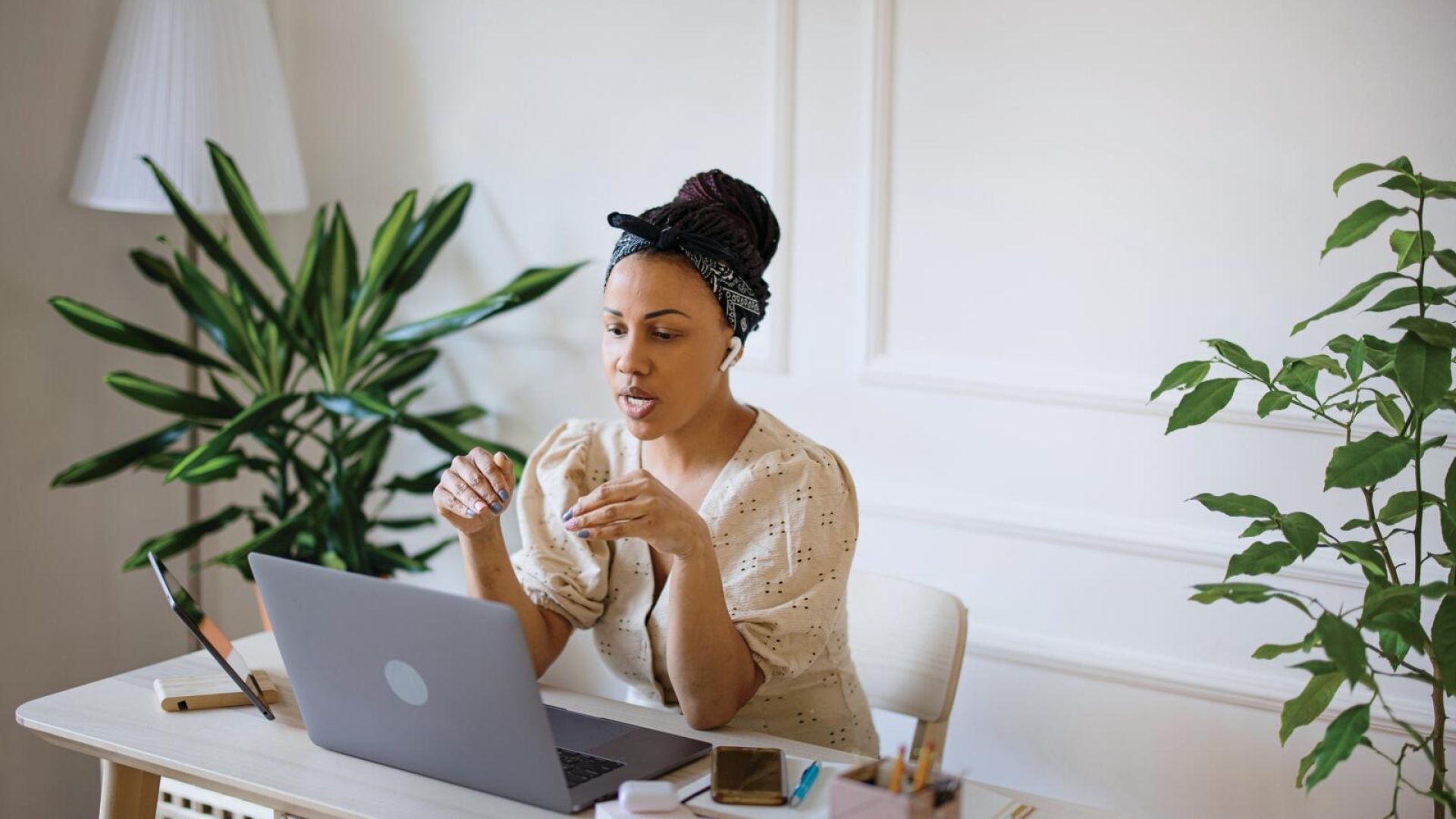
Do I have your attention yet?
In her book The Man Curse New York 107.5 WBLS radio personality and author Raqiyah Mays explores the complicated legacies of love passed among generations of women. The book, which is described as “self-help fiction,” examines generational curses and love cycles through the story of Meena Butler, a successful woman who tries to break her family’s Man Curse. This “man curse” has prevented the women of her family from marrying. Raqiyah has written for diverse publications and was featured in VH1’s “Future Leaders of Black History” campaign. She was also saluted as a leader for her powerful work as a part of The Limited’s “New Look of Leadership” campaign. Women’s empowerment and leadership is an important part of Raqiyah’s platform, so of course, she was down to dig a little deeper. Let’s see what she has to say about love.
Raqiyah, we have all seen those statistics that admonish successful African American women as “doomed to be alone.” What do you feel is the legacy of love for black women?
The legacy of love for black women and for black people as a whole is complicated. It’s complicated because of slavery and post-traumatic stress from slavery. From systemic laws that were made to break up the black family. I attribute this to part of our legacy when it comes to different types of love.
There’s family love where black women have been the ones who received the love, showing the love and holding families together. For romantic love, our legacy has been difficult. I say it’s because of post-traumatic stress disorder, because of slavery, because of the things that we have to deal with emotionally from seeing our children pulled away from us and our men being taken away from us, killed and whipped, and being forced to raise children by ourselves. Forced to put on that smile and holding it all together.
I think continually seeing that throughout time, on the plantation and in the streets has subconsciously made some black women feel that men might not be there to help them. Some feel they may not find love. Do all black women feel like this? Absolutely not. But there are issues of love as a black community being connected to slavery and traumatic stress disorder.
So once and for all, what’s the Man Curse? Do you feel that there is a Man Curse?
My novel, “The Man Curse,” is a fictional account about a young woman who is working to break the man curse that the women in her family believe has prevented them from marrying. They believe that they are hexed.
I’ve had countless women come to me and tell me that they feel cursed. I’ve had women talk about coming from different families of women that aren’t married that don’t speak of this publically but privately say that they’re cursed. I heard this from gay men, white women, and I’ve absolutely have heard it from black women.
Is there a curse? I believe in the power of the mind. I believe if you feel that you’re cursed, then you are. You manifest it, you believe. Do I believe that sometimes like my protagonists in my novel, that if you are taught to believe something about yourself, that you become what you’ve been taught? Absolutely. Generational cycles and ways of thinking about ourselves that I talk about in my novel, are definitely part of and one of the reasons some feel like they don’t deserve love.
The dating site OK Cupid tracked racial statistics and attraction via their platform. Their statistics revealed that African American women reach out the most on their platform and are responded to the least. How do you think this affects our relationships and how do black women deal with that level of rejection?
I think that every woman’s experience is different. Maybe it was just that dating website. I’ve used dating websites before. I have found that it was every other race that reached out to me, mostly white men.
How do we deal with rejection? I think it’s about your outlook and your mindset. The right one for you will find their way to you; you will call them to you. When someone is not reaching out to you it’s not about you. It’s about them. They’re just not the right one. It’s about waiting for that right person and also making yourself right. You can look at rejection as a negative or as a positive thing. Say, ‘thank you Lord for not bringing me another deadbeat!’ You can say, ‘I know the right person will come to me when the time is right.’ You can open yourself up in other ways of meeting people. You might meet at a birthday party, at the bookstore, library, or at the museum or somewhere where you’re out not even thinking about meeting someone and just enjoying your life.
Let’s talk about cultural and generational legacies. I know amazing women who come from 3 generations of single women. How does someone break through this?
In my novel, Meena really has to become conscious of herself, why she thinks the way she does, where she got it from and the less than positive ways that it’s affected her love life. Sometimes our ways of dealing with love and seeing love comes from what we saw consciously and subconsciously. If you grew up in a house full of women and you did not see a good relationship between a man and a woman, you are almost destined to repeat that cycle. Not because you want to but because that is all you know.
The mind is interesting. Psychology is interesting. Sometimes we don’t remember what we saw when we were kids [but] we end up repeating those types of things until we do the work. Get therapy, which I advocate for and discuss in my novel “The Man Curse.” Until Meena actually begins to do the work and stops pointing fingers at people and starts taking responsibility of why she is that way, then she begins to break the cycle.
I think everyone can heal. I believe it comes from being conscious every day and really making a dedicated choice to work on yourself. Part of working on yourself is not just reading self-help books, magazines and articles, but also taking that leap of faith to see a therapist. Because if you’re repeating a negative cycle that you didn’t want to repeat, then perhaps there’s something subconscious going on. And you need an objective party that can help you exorcise some of the subconscious things that are creating results that you don’t want.
What do you want women to take away from your book?
I want women to take that you are what you think. If you think you’re cursed, you are cursed. If you think you deserve love and will have healthy love, you will. I want women to take away from this book that you can heal. It takes a conscious daily effort to heal, every single day. Literally, it takes courage to be brave enough to do the work necessary, to go to therapy. Picking up some self-help books reading and researching why you attract what you’re attracting.
I travel to domestic violence shelters, and speak at colleges, women’s groups, and women’s organizations, sharing empowerment. If I’m not traveling, you might see me in the streets working with Amnesty International saving lives, discussing police brutality, violence against women, and Muslim refugees.
I want women to take away that you can change. Sometimes who we’ve become is because of our upbringing. You can change that. You can be whoever you want to be. But it takes a conscious effort every day you have to do the work and be brave enough to walk through that vulnerable tunnel and deal with those emotions and those feelings. And you need to be able to share them with yourself and be brave enough to share them with the person that you want to share your life with and that you love. In a healthy way.
Find the book “The Man Curse” by Raqiyah Mays on Amazon and learn more at themancurse.com.
Abiola Abrams is the author of the award-winning Sacred Bombshell Handbook of Self-Love, Manifest Your Miracles meditation album and Womanifesting Goddess Affirmation Cards. The popular love and lifestyle guru is also the founder of the Spiritpreneur School podcast, blog, web TV show, and online academy at SacredBombshell.com. Follow her on Instagram to continue the discussion about this week’s hot topic, and then email her your burning questions now. Anything you send will be posted anonymously, promise.




